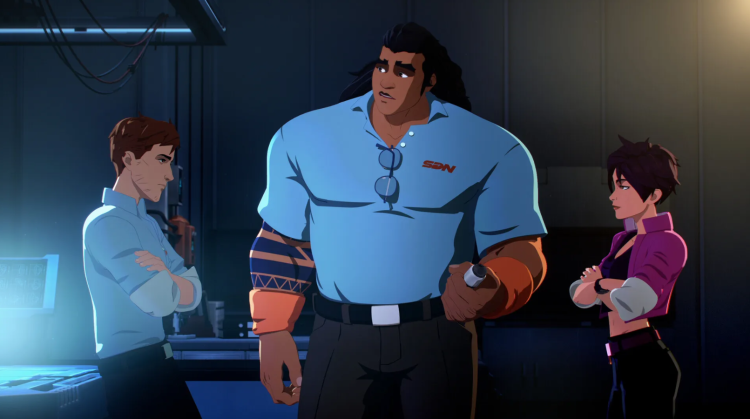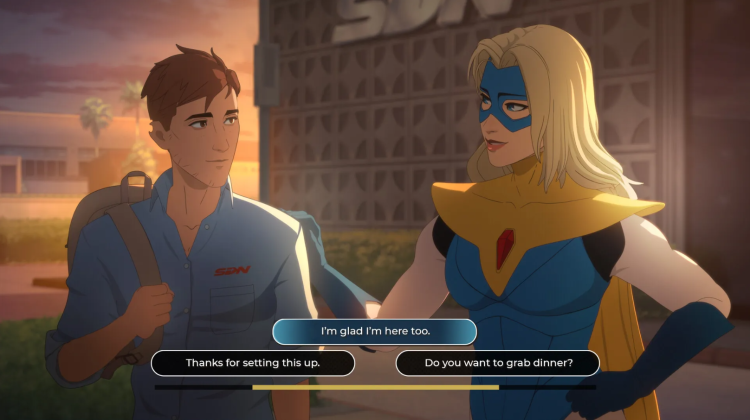Dispatch: A Superhero Comedy That Became a Game With Heart
Dispatch is the kind of game that doesn’t sound real when you first describe it: a washed-up superhero working at a desk job, managing ex-villains in a cubicle-filled office. But the game is real, and it’s the next title from AdHoc Studio, a team built by former Telltale devs. And yes, it was partly inspired by old SportsCenter commercials.
Polygon recently spoke with director Nick Herman about how Dispatch came to life. The story goes back to 2018 when AdHoc Studio was founded by four key figures from the original Telltale Games. At first, they weren’t planning to make games at all. They were thinking about live-action projects, maybe something in between formats. One of the first gigs they got was writing a script for a live-action superhero office comedy. The vibe was weird and dry, and they were watching tons of ESPN's "This Is SportsCenter" ads for reference.
If you remember those commercials, you know what to expect. Mascots next to fax machines, athletes in cubicles, the Stanley Cup in a dishwasher. Deadpan chaos. Herman and his team liked how strange it felt to see superheroes doing boring desk work. That tone stuck. They were just getting ready to start production when COVID hit and shut it all down.
So they pivoted.
They had already put time into the script, tone, and characters, and they didn’t want it to go to waste. Instead of shelving the whole thing, AdHoc reimagined it as a game. And since they already knew how to build branching narrative titles, they pulled it back into the space they were most familiar with: interactive storytelling.

The result is Dispatch, a game where you play as Robert Robertson, a former superhero called Mecha Man. Now, he's behind a desk at the Superhero Dispatch Network (SDN). Think low-rent SHIELD, with office drama instead of world-saving action. Aaron Paul voices Robertson, and Jeffrey Wright plays his grumpy co-worker Chase. The rest of the cast? A group of reformed villains who are either unreliable, unstable, or just flat-out weird.
Robertson is the kind of guy who should quit but won’t. He doesn’t have powers anymore, and he’s clearly lost his shine. But he keeps showing up. That makes him a different kind of hero—one that just tries to do good even when the world feels small. He sends ex-villains out on missions, tries to hold things together, and manages the endless awkwardness of life in a low-budget office.
Originally, the setting was going to be way more bleak. Herman said they planned to shoot the live-action version in a strip mall next to a Baskin-Robbins, with stained carpets and terrible lighting. Once it became a game, that didn’t make sense anymore. Game art doesn’t have the same cost limits as film, so they leaned into more detailed design. The SDN office is still dated, but it has more structure now. It looks like it belongs in an old government building. It’s retro, not trashy.
The team knows that post-pandemic office culture has changed. Remote work is normal now, and big offices don’t feel the same. But for Dispatch, the point wasn’t realism. It was tone. Cubicles and coworkers, bad lighting and paperwork—these make the comedy work. Even if it feels like a version of office life that doesn’t really exist anymore, it still hits because of how familiar it all feels.
Gameplay centers on decision-making. You choose dialogue. You send out teams. Your choices change how people feel about Robertson. Characters remember what you do. If that sounds familiar, it’s because the team helped shape that formula at Telltale. Dispatch doesn’t try to reinvent the wheel, but it does make one thing clear: this is a character-first experience.
Herman explained the choice system simply:
“Yeah, it’s hard. That’s the short answer. It’s hard.”
That’s because every decision opens a path. And if you want all the outcomes to feel good, you have to write all of them like they matter. Herman said it’s like writing multiple TV shows at the same time, where each route needs to land well, with emotional payoffs. You can’t just make 30 endings and call it a day. If half of them feel lazy, people will remember.

So AdHoc is focusing on relationships. They want players to care about the characters, not just the story points. If you invest in the people, the endings feel earned no matter which one you get. That’s where most of the writing energy is going.
Initially, Robertson was only going to manage a team of three heroes. But during playtesting, the devs realized that sending characters out on missions was more fun with a bigger squad. So they scaled up. That meant more writing, more animation, more tracking, but it worked better. Now, you juggle a full team, each with their own baggage, skills, and ways to make your life harder.
The humor remains dry and weird throughout. Imagine a superhero team that works like your least favorite office. Missions range from stopping robberies to helping cats. Nobody respects Robertson, but he still gives it his all. There’s something sad and funny about that.
Dispatch doesn’t have a locked-in release date yet. It’s set for 2025 and will launch on PC first, with console versions planned. You can try the demo now on Steam. The full game will arrive when it’s ready.
In the meantime, Herman recommends rewatching those old SportsCenter commercials. They’re the weird, funny core of what this game is trying to channel. A world where the fantastic meets the mundane and everyone just keeps clocking in anyway.

Comments